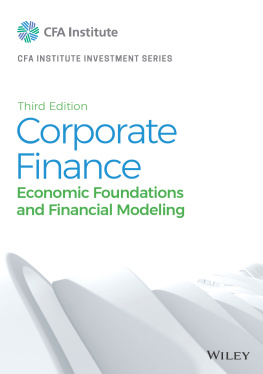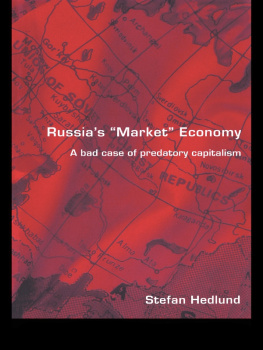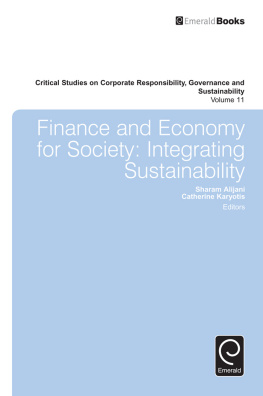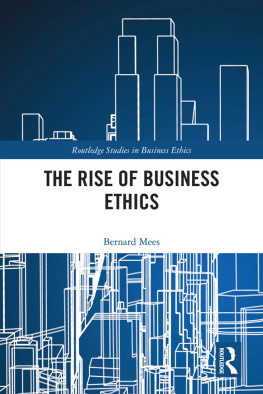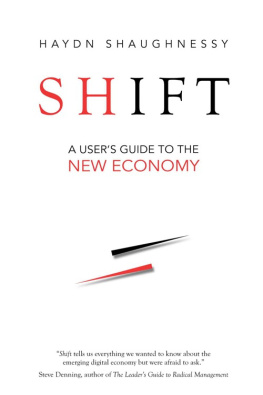Predatory Value Extraction
Predatory Value Extraction
How the Looting of the Business Corporation Became the U.S. Norm and How Sustainable Prosperity Can Be Restored
William Lazonick and Jang-Sup Shin
Great Clarendon Street, Oxford, OX2 6DP,
United Kingdom
Oxford University Press is a department of the University of Oxford.
It furthers the Universitys objective of excellence in research, scholarship,
and education by publishing worldwide. Oxford is a registered trade mark of
Oxford University Press in the UK and in certain other countries
William Lazonick and Jang-Sup Shin 2020
The moral rights of the authors have been asserted
First Edition published in 2020
Impression: 1
All rights reserved. No part of this publication may be reproduced, stored in
a retrieval system, or transmitted, in any form or by any means, without the
prior permission in writing of Oxford University Press, or as expressly permitted
by law, by licence or under terms agreed with the appropriate reprographics
rights organization. Enquiries concerning reproduction outside the scope of the
above should be sent to the Rights Department, Oxford University Press, at the
address above
You must not circulate this work in any other form
and you must impose this same condition on any acquirer
Published in the United States of America by Oxford University Press
198 Madison Avenue, New York, NY 10016, United States of America
British Library Cataloguing in Publication Data
Data available
Library of Congress Control Number: 2019941476
ISBN 9780198846772
DOI: 10.1093/oso/9780198846772.001.0001
Printed and bound in Great Britain by
Clays Ltd, Elcograf S.p.A.
Links to third party websites are provided by Oxford in good faith and
for information only. Oxford disclaims any responsibility for the materials
contained in any third party website referenced in this work.
Preface
Our collaboration for this book began in earnest in 2015 when the U.S. activist hedge fund Elliott Associates attacked Samsung Group, Koreas most successful business group. By then, Lazonick, whose Harvard Business Review article, Profits Without Prosperity, had exposed the use of stock buybacks to loot the U.S. business corporation, was engaged in a study of the role of hedge funds in this value-extraction process. Shin wrote several articles about the battle between Samsung and Elliott, including The Reality of Actions by Activist Hedge Funds and Public Policies on Chaebols published in KERI insight , and wanted to undertake in-depth research on hedge-fund activism. In August 2015, at a workshop in Kyoto on Financial Institutions for Innovation and Development, funded by the Ford Foundation, we decided to work together on a project that would explain the rise of hedge-fund activism, its institutional support in the United States, and its consequences for economic growth and income distribution.
The result of our collaboration since then is this book on predatory value extraction: the process by which powerful financial interests extract value from business corporations that is far in excess of their contributions to the value-creation process. Critical to understanding value extraction is a coherent analysis of the process of value creation as it occurs in business corporations. For this analysis, we employ Lazonicks theory of innovative enterprise, with its focus on three social conditions: strategic control, organizational integration, and financial commitment. In this book, we show how the powerful combination of corporate executives as value-extracting insiders, institutional investors as value-extracting enablers, and hedge-fund activists as value-extracting outsiders has resulted in strategic control of corporate resource allocation that amounts to nothing less than the legalized looting of the U.S. business corporation.
In the course of writing this book, Lazonick travelled to Singapore twice and Shin travelled to the United States twice, and we also met in Korea once, while communicating frequently by email. It has been a stimulating intellectual collaboration for both of us. We give our special thanks to researchers at the Academic-Industry Research Network (theAIRnet), a non-profit organization of which Lazonick is co-founder and president: Matt Hopkins for his assiduous research on hedge funds; Ken Jacobson, who integrated his knowledge of the books subject matter with his extraordinary copy-editing capability to transform complexity into clarity; Mustafa Erdem Sakin for contributing his data expertise; and Emre Gme for valuable research assistance. We also are grateful to Tom Ferguson, research director of the Institute for New Economic Thinking (INET), for his recognition of the importance of an analysis of the financialization of the U.S. business corporation for understanding instability and inequity in the U.S. economy as a whole. We were greatly helped by Shins research assistants at the National University of Singapore: Divya Sampath, Louis Lim Bei Long, Suzie Shin, and Shawn Wong Jun Kit.
Lazonick received financial support from INET through theAIRnet; European Union Horizon 2020 Research and Innovation Programme under grant agreement No. 649186 (Innovation-Fuelled Sustainable and Inclusive Growth) through the University of Ljubljana; Korea Economic Research Institute; and Ford Foundation project on Financial Institutions for Innovation and Development through UMass Lowell. Shin is grateful to the National University of Singapore (C-122-000-031-001) and the Laboratory Program for Korean Studies (AKS-2018-LAB-1250001) for their financial support.
Lazonick dedicates this book to the amazing team of researchers at theAIRnet. Shin dedicates this book to his wife Kate Lim who wholeheartedly supported this long journey and endured him using their home as his office.
Contents
This book explains how, in the United States, an ideology of corporate resource allocation known as maximizing shareholder value (MSV), which emerged in the 1980s and came to dominate strategic thinking in business schools and corporate boardrooms, undermined the social foundations of sustainable prosperity, resulting in employment instability, income inequity, and slow productivity growth. In explaining what happened to sustainable prosperity in the United States, we focus on the growing imbalance between value creation and value extraction in the U.S. economy. At the center of this imbalance are the corporate-governance institutions that determine the relation between value creation and value extraction in the nations major business corporations. The imbalance has become so extreme in the United States that predatory value extraction has become a central economic activity, to the point at which the U.S. economy as a whole can be aptly described as a value-extracting economy .
Value creation is a process that generates the high-quality, low-cost goods and services that are the essence of productivity growth. Value extraction is the process of appropriating portions of the value that has been created. Balancing the contributions of economic actors to value creation with their power to extract value provides the foundation for stable and equitable economic growth. An imbalance occurs when certain economic actors are able to assert their power to extract far more value than they contribute to the value-creation process. This book is about how that imbalance has become extreme, with dire economic, political, and social consequences.


